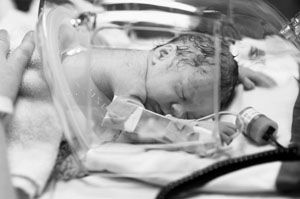The Obama administration launched a $40 million effort Wednesday to reduce premature births, especially early elective deliveries, but it has no plans to stop Medicaid from paying for those deliveries.
 About 10 percent of all deliveries are scheduled — either as induced or Cesarean-section –before 39 weeks and are not medically indicated, according to the Department of Health and Human Services. Preterm babies, those born before 39 weeks, are at increased risk for death, low birth weight, lung disorders, feeding problems and blood infections, according to the American College of Obstetricians and Gynecologists.
About 10 percent of all deliveries are scheduled — either as induced or Cesarean-section –before 39 weeks and are not medically indicated, according to the Department of Health and Human Services. Preterm babies, those born before 39 weeks, are at increased risk for death, low birth weight, lung disorders, feeding problems and blood infections, according to the American College of Obstetricians and Gynecologists.
Medicaid, the state-federal health insurance program for the poor, pays for about 40 percent of all deliveries in the United States each year. Medicaid last year stopped paying for several so called “never” events such as preventable complications or wrong site surgery. But on Wednesday, Medicaid chief Cindy Mann said it has no plans to stop paying for elective deliveries before 39 weeks. “This is not a payment strategy,” Mann said when asked whether Medicaid would keep paying for elective preterm deliveries.
Under the four year initiative called Strong Start announced Wednesday, the federal Center for Medicare and Medicaid Innovation will seek to reduce preterm births by giving money to hospitals and other health providers and community coalitions to improve prenatal care and test new approaches such as group visits for pregnant women and offer case management services at birth centers.
“Preterm births are a growing public health problem that has significant consequences for families well into a child’s life,” said HHS Secretary Kathleen Sebelius said. Medicaid spends $20,000 a year on babies born premature in their first year, almost 10 times that of infants born at full term.
More than 500,000 infants are born prematurely in the United States each year, an increase of 36 percent in the past two decades, Sebelius said.
A recent study by the Leapfrog Group, an employer health coalition, showed huge variation in hospitals performing elective preterm deliveries. Rates ranged from less than 5 percent at some hospitals to more than 40 percent, according to Leapfrog’s 2011 data.
Leapfrog CEO Leah Binder said Medicaid and employers should consider stopping coverage for elective preterm births. “We fully support changes in payment to disincentivize the practice,” she said.
Doctor groups often say early deliveries are done at the request of pregnant women. “Women ask for it,” said Dr. Hal Lawrence, executive vice president of the American College of Obstetricians and Gynecologists.
Scott Berns, senior vice president for the March of Dimes, said doctors also need to be educated about the risks of early deliveries.
“More education is needed for doctors and patients,” Berns said.
HHS is working with both ACOG and March of Dimes to reduce the incidence of early elective births.






